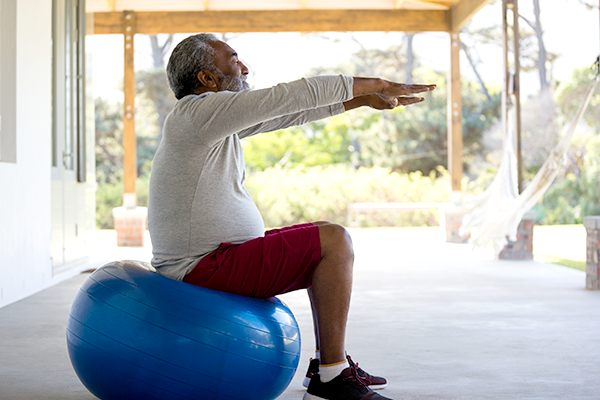Patient Education: Education for the individual with multiple chronic illnesses on medication adherence and management
It is common for individuals with COPD to have multiple comorbidities. Along with this comes the necessity, in most cases, to see numerous physicians. The opportunity for mismanagement of the individual described here is great. One physician may focus solely on glucose levels and insulin or diabetes medication to prescribe or change. Another physician could be focused on blood pressure and manipulating the dosage of the medication used to treat this disease. This myopic focus can lead to mismanagement of the individual as a whole.
So, what is the solution? Or rather, how can we minimize the risk of such medication errors or mismanagement? We can educate these individuals with best-practice tools and resources. This is a vital part of patient engagement.

Some of the chronic diseases which are of highest risk for medication error are, but not limited to:
- COPD
- Congestive Heart Failure
- Diabetes
- Hypertension
- Depression and/or Anxiety
- Chronic Kidney Disease
- Heart Disease
- Osteoporosis
- Osteopenia
Educate patients to use these best practices
- Work with the primary doctor to decide what matters most when it comes to care. Remember that patients can choose which treatments they want and don’t want. Think about these questions and talk to the doctor about:
- Which health problems are the most bothersome? Which one should be focused on first?
- What matters most: living a long time, staying independent, or having the least amount of pain or other symptoms?
- Are any of the treatments causing side effects or problems?
- Plan for doctor visits ahead of time. When seeing the doctor, make a plan for what to discuss and come prepared with notes or questions. Do not try to do too much at once. If necessary, make more than one appointment.
- Make sure the primary doctor, and any other doctor or nurse who prescribes medicines, knows about all of the medicines taken. This includes any over-the-counter or herbal medications used on a regular basis. It is helpful to take the actual bottles of pills to each visit, so the doctors or nurses can review them. Ask the main doctor or nurse to go over all medicines at least once a year.
- Keep a list of all the medicines taken regularly that includes the dose taken, the reason for taking it, and the doctor or nurse who prescribed it. Keep this list on hand and take it to all medical appointments.
- Ask the doctors and nurses which, if any diet or lifestyle changes would improve your health problems. Some of these changes may reduce the risks and side effects of some medicines or treatments.
There are things that all people can do to improve their health. Here are some examples:

- Choose a diet rich in fruits, vegetables, and low-fat dairy products that is low in sweets and processed flours. For example, choose whole-grain bread and whole-grain pasta over white bread or regular pasta.
- Do some sort of physical activity most days of the week, and build the activity level slowly. Even small amounts of activity done several times a day can help build strength.
- Try to get enough sleep. For trouble sleeping, talk to the doctor or nurse about possible solutions.
- For feelings of depression and anxiety, talk to the doctor or nurse. Depression and anxiety can make other health problems hard to manage.
- Plan activities with other people, to avoid being stuck at home and alone for days. If friends and family are not around, look at the local paper for ways to meet new people through senior centers, religious groups, libraries, garden clubs, or other activity groups.
Patient Education for the Approaching Travel Season
As we approach warmer temperatures and a time when our patients are doing more travel, we can provide some best practice tips to ensure they have the knowledge needed to stay healthy. The following tips may minimize the risk of infections, sickness, and exacerbations while they are trekking through airports, tourist venues, and exposing themselves to unfamiliar airborne germs.
What if I am traveling internationally? Those traveling to Asia, Africa, South America, or Eastern Europe, should make an appointment at a travel clinic. The doctors and nurses there can help prepare for the trip. Depending on the destination, there might be a need to:
- Have one or more vaccines, weeks, or months before the trip. For example, if traveling to parts of Africa or South America, a vaccine against yellow fever may be indicated.
- Avoid ice, tap water, and certain foods or parts of foods that can carry germs. Drinking untreated water or eating certain foods may result in an infection that causes diarrhea, vomiting, or other problems.
- Treat water, to make sure it has no germs that could cause infection. To get rid of bacteria, boil water for three minutes and then let it cool. Another way to eliminate germs is to take two quarts of water, add two drops of 5% bleach, and wait 30 minutes.
- Use bug spray containing DEET or a chemical called picaridin. Wear clothes that protect from insect bites. Plus, check yourself for insects and remove them if found. Insects carry germs, and may cause infection when they bite or sting.
- Take medicines before and during the trip to prevent infections such as malaria.
- Wear shoes that cover the feet entirely if walking anywhere that dog or human waste may be present in the sand or soil. Places that do not have adequate plumbing or that do not treat toilet water before dumping it, result in contaminated soil. If walking barefoot in situations like these, it's possible to acquire a worm infection.
What if I have a health condition, but I want to travel? If you have an ongoing health problem, such as diabetes or heart disease, ask your doctor or nurse how to plan for your trip.
Many people with health concerns can travel without any problems. The key is to form a plan. Make sure to have all the needed medicines and supplies. It is essential to make a list of all the prescribed medications, the doses, and reason or associated diagnosis.
Here are some examples of individual travel needs:

- Some people with diabetes must carry pills, insulin, and syringes when they fly. They usually have a letter from their doctor explaining their needs.
- Some people with lung or heart disease need extra oxygen when they fly. Because oxygen content in a pressurized aircraft contains less oxygen than room air at sea level, supplemental oxygen may be required by those with pulmonary issues. People who need oxygen on the flight must arrange it with the airline before they fly. A copy of the oxygen prescription should be kept on hand while traveling. Also, pre-planning with the HME provider is needed to ensure the availability of the necessary equipment required for travel.
- Some people with blood clotting problems or bad veins need to stand up and move around if they are on a long flight. Otherwise, they can develop blood clots. They might also need to wear special stockings that improve blood flow in the legs.
Tongue Fat Volume and OSA
Obese patients with obstructive sleep apnea (OSA) are encouraged to lose weight, but the mechanism for improvement in OSA is unknown.
A recent prospective observational study of 67 obese patients with OSA compared the MRI of the upper airway before and after weight loss. The MRI measured airway size and tongue, pterygoid, lateral pharyngeal wall, and abdominal fat volumes. In the study, reduced tongue fat volumes was the primary mediator associated with an improved apnea-hypopnea index leading to the hypothesis that reduction in tongue fat volume may be a potential treatment strategy for patients with obesity and OSA.
Learn more about Incremedical here.
